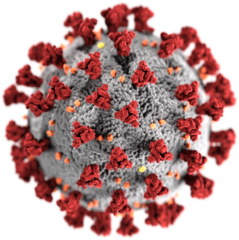A discussion paper by Cornelius Herstatt and Rajnish Tiwari on the opportunities of frugality-based approaches in the post-Corona era: How frugal innovations can help achieve "affordable green excellence" in a world that could do with more effective use of resources. They argue that the concept of "affordability" has to be considered more comprehensively and in a multidimensional perspective - not just financially, but also socially, infrastructurally and ecologically.
This paper can be downloaded here.

(image credit: CDC/ Alissa Eckert, MS; Dan Higgins, MAM / Public domain)
Abstract
Objective of this discussion paper is twofold: First, we assess the likely impact of the Corona crisis on the economic and societal choices of people, especially in relation to voluntary simplicity. Second, we contextualize the impact of those choices in the field of innovation management. Taking a normative-conceptual perspective we seek to understand in how far frugality, and inter alia, frugal innovations can play a role in better managing the after-effects of the Corona crisis and what implications arise out of this for the relevant societal stakeholders, especially for corpo-rates, policy makers and consumers.
Taking note of historical discussions of the role of frugality as a “virtue”, we propose that the currently ongoing fourth renaissance of frugality needs to – and is likely to – emerge as a mega-trend that may shape a frugal “AGE” resulting in “affordable green excellence” as the dominant innovation paradigm. To realize this potential, however, it is necessary to move away from the unidimensional focus on monetary affordability of frugal solutions. There is a need for develop-ing a more comprehensive and multidimensional understanding of affordability that is targeted at ensuring financial, societal, infrastructural and ecological affordability of frugal products, ser-vices, technologies and business models.
Frugal innovators and entrepreneurs should not merely target “significant cost reduction” in relation to existing substitute products but rather aim at ensuring “high affordability” that will open up new business arenas with means of breakthrough innovations and technological excel-lence. This paradigm shift requires action from all relevant stakeholders including policymakers.
Keywords: Corona Crisis, Covid-19 Pandemic, Frugality 4.0, Frugal Innovation, Affordable Green Excellence, Circular Economy, Voluntary Simplicity
Note: This discussion paper documents initial ideas with the intention of advancing research on “affordable green excellence”. We invite comments, feedbacks and ideas for collaborative trans-disciplinary research/projects from interested colleagues from academia, industry, policy-making institutions and other domains, such as foundations and non-government organizations.